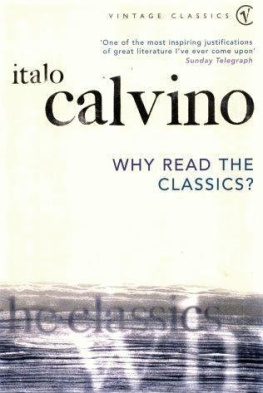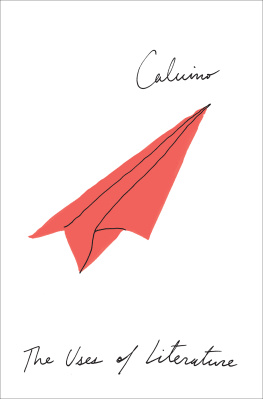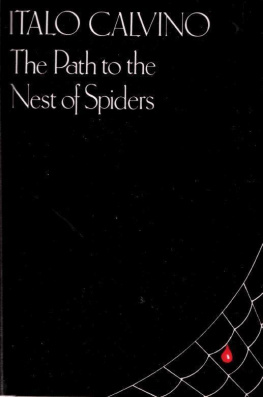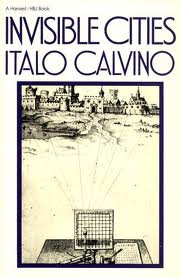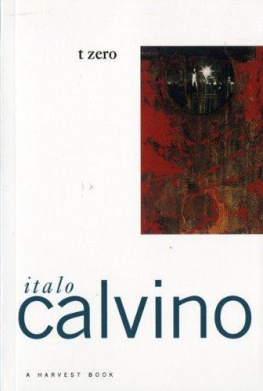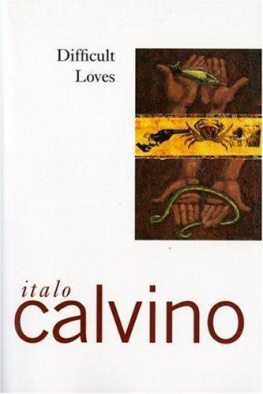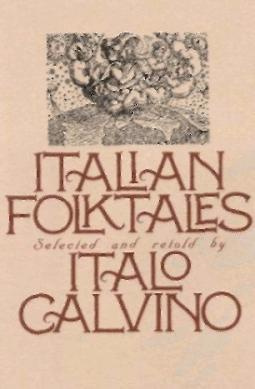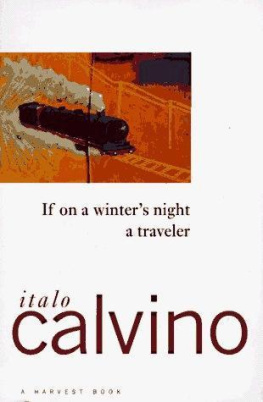Italo Calvino - Numbers in the Dark: And Other Stories
Here you can read online Italo Calvino - Numbers in the Dark: And Other Stories full text of the book (entire story) in english for free. Download pdf and epub, get meaning, cover and reviews about this ebook. year: 2009, publisher: Vintage Books, genre: Detective and thriller. Description of the work, (preface) as well as reviews are available. Best literature library LitArk.com created for fans of good reading and offers a wide selection of genres:
Romance novel
Science fiction
Adventure
Detective
Science
History
Home and family
Prose
Art
Politics
Computer
Non-fiction
Religion
Business
Children
Humor
Choose a favorite category and find really read worthwhile books. Enjoy immersion in the world of imagination, feel the emotions of the characters or learn something new for yourself, make an fascinating discovery.

- Book:Numbers in the Dark: And Other Stories
- Author:
- Publisher:Vintage Books
- Genre:
- Year:2009
- Rating:5 / 5
- Favourites:Add to favourites
- Your mark:
- 100
- 1
- 2
- 3
- 4
- 5
Numbers in the Dark: And Other Stories: summary, description and annotation
We offer to read an annotation, description, summary or preface (depends on what the author of the book "Numbers in the Dark: And Other Stories" wrote himself). If you haven't found the necessary information about the book — write in the comments, we will try to find it.
Numbers in the Dark: And Other Stories — read online for free the complete book (whole text) full work
Below is the text of the book, divided by pages. System saving the place of the last page read, allows you to conveniently read the book "Numbers in the Dark: And Other Stories" online for free, without having to search again every time where you left off. Put a bookmark, and you can go to the page where you finished reading at any time.
Font size:
Interval:
Bookmark:
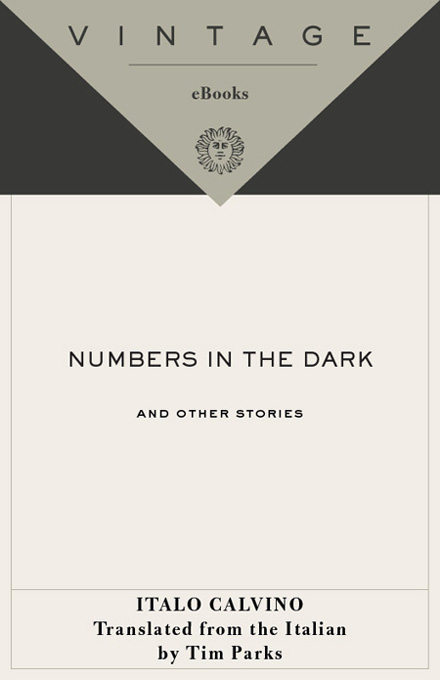
Numbers in the Dark

The curious quirks that would shape Calvino's eccentric orbit can be descried, along with the exuberant talent and sense of magic that would make that orbit a flaming one.
Los Angeles Times
With seventeen books in print, Italo Calvino enjoys a privilege that few foreign writers ever achieve here: virtually all his works can be read in English. Calvino's ready availability is of course a sign (and support) of his canonical status in world literature, the capacit) of his fiction to be significant in many different cultures, Tim Parks's translation is perfectly in tune with the various dialects and discourses that Calvino assimilated during his Career. By the 80s his supple Italian was tossing off polylingual arpeggios, technical jargon's, nonce words. More than accurate and readable, [Parks's] version is inventive.
The New York Times Book Review
Numbers in the Dark is a glorious grab bag with gems from every phase in Calvino's career.
San Francisco Sunday Examiner <& Chronicle Book Review
Warmly and experdy translated by Tim Parks, a gifted writer himself.
Esquire
Numbers in the Dark
Italo Calvino (19231985) was born in Cuba and grew up in San Remo, Italy. He was a member of the partisan movement during the German occupation of northern Italy in World War II. The novel that resulted from that experience, published in English as The Path to the Nest of Spiders, won widespread acclaim. His other works of fiction include The Baron in the Trees, The Castle of Crossed Destinies, Cosmicomics, Difficult Loves, If on a Winters Nighta Traveler, Invisible Cities, Marcovaldo, Mr. Palomar, TheNonexistent Knight & The Cloven Viscount, t %ero, Under the Jaguar Sun, and The Watcher and Other Stories. His works of nonfiction include Six Memos for the Next Millennium and The Uses of Literature, collections of literary essays, and the anthology Italian Folktales.

also by Italo Calvino
The Baron in the Trees
Cosmicomics
Difficult Loves
Fantastical Tales
If on a Winter's Night a Traveler
Invisible Cities
Italian Folktales
Marcovaldo
Mr. Palo mar
The Nonexistent Knight & the Cloven Viscount
The Road to San Giovanni
Six Memos for the Next Millennium
Under the faguar Sun
The Uses of Literature
The Castle of Crossed Destinies
t zero
The Watcher and Other Stories
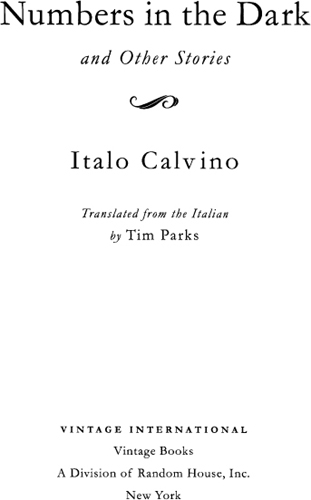
Italo Calvino began writing in his teens: short stories, fables, poetry and plays. The theatre was his first vocation and perhaps the one that he spent most time on. There are many surviving works from this period which have never been published. Calvino's extraordinary capacity for self-criticism and self-referential analysis soon led him to give up the theatre. In a letter to his friend Eugenio Scalfari written in 1945 he announces laconically, Tve switched to stories. Written in capitals and covering a whole page the news must have been important indeed.
From then on there was never a period when Calvino was not writing. He wrote every day, wherever he was and in whatever circumstances, at a table or on his knee, in planes or hotel rooms. It is not surprising therefore that he should have left such a huge amount of work, including innumerable stories and fables. In addition to those he brought together in various collections, there are many which only appeared in newspapers and magazines, while others remained unpublished.
The texts collected in this volume unpublished and otherwise - are just some of those written between 1943 - when the author was still in his teens - and 1984.
Some pieces were initially planned as novels but later became stories, a process that was not unusual with Calvino, who reworked a number of sections from an unpublished novel, The White Schooner, for his Collected Stories of 1958.
Other pieces in this present volume came in response to specific requests: Glaciation, for example might never have been written if a Japanese distillery producing, amongst other things, a whisky which is extremely successful in the Far East, had not decided to celebrate their fiftieth anniversary by commissioning stories from some well-known European writers. There was only one condition: that an alcoholic drink of some kind should be mentioned in the text. Glaciation first appeared in Japanese before being published in Italian. Another story with a curious history is The Burning of the Abominable House. There had been a somewhat vague request from IBM: how far was it possible to write a story using the computer? This was in 1973 in Paris when it wasn't easy to gain access to data processing equipment. Undaunted, Calvino gave the project a great deal of his time, carrying out all the operations the computer was supposed to do himself. The story was finally published in the Italian edition of Playboy, Calvino didn't really feel this was a problem, though he had originally planned for it to be published in Oulipo as an example of ars combinatona and a challenge to his own mathematical abilities.
As far as the stories that open this collection are concerned, almost all previously unpublished and very short - Calvino referred to them as raccontini, little stories - it may be useful to know that in a note found amongst his juvenilia and dated 1943, he wrote: One writes fables in periods of oppression. When a man cannot give clear form to his thinking, he expresses it in fables. These little stories correspond to a young man's political and social experiences during the death throes of Fascism. When the times were right, he added with the end of the war and Fascism, that is the fable would no longer be necessary and the writer would be able to move on to other things. But the tides and dates of many of the pieces in this collection and of other works not included here suggest that despite these youthful reflections, Calvino did in fact continue to write fables for many years thereafter.
Also included in this volume are one or two pieces, such as The Call of the Water, which, while neither stories nor fables in the strict sense of those words, are now very difficult to find elsewhere and definitely worth the reader's attention.
In other cases, texts that may seem unconnected to the main body of his work are part of projects that Calvino had clearly developed in his mind but did not have time to finish.
Esther Calvino
1943-1958

I stepped off the pavement, walked backwards a few paces looking up, and, from the middle of the street, brought my hands to my mouth to make a megaphone and shouted towards the top stories of the block: Teresa!
Font size:
Interval:
Bookmark:
Similar books «Numbers in the Dark: And Other Stories»
Look at similar books to Numbers in the Dark: And Other Stories. We have selected literature similar in name and meaning in the hope of providing readers with more options to find new, interesting, not yet read works.
Discussion, reviews of the book Numbers in the Dark: And Other Stories and just readers' own opinions. Leave your comments, write what you think about the work, its meaning or the main characters. Specify what exactly you liked and what you didn't like, and why you think so.

